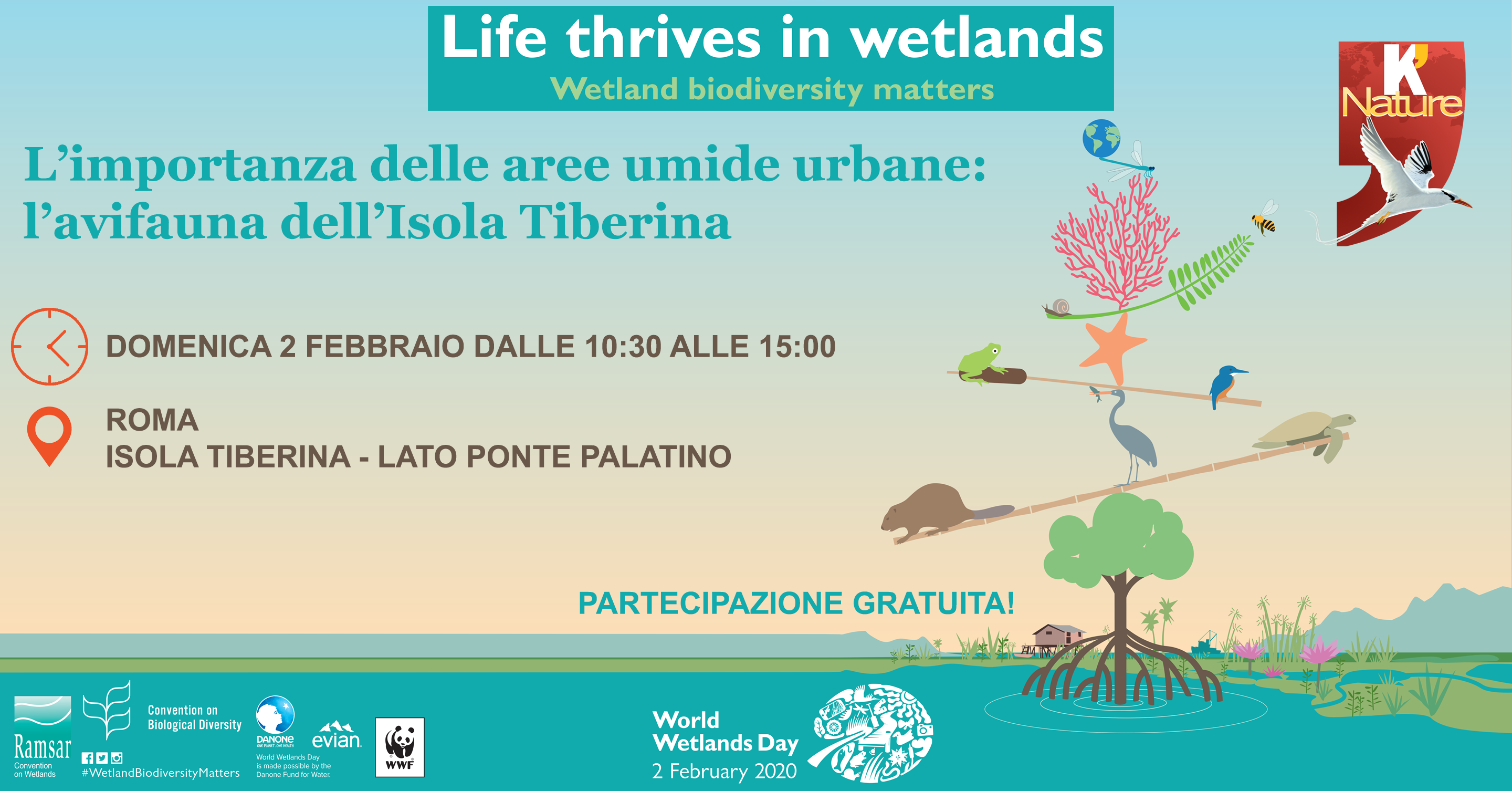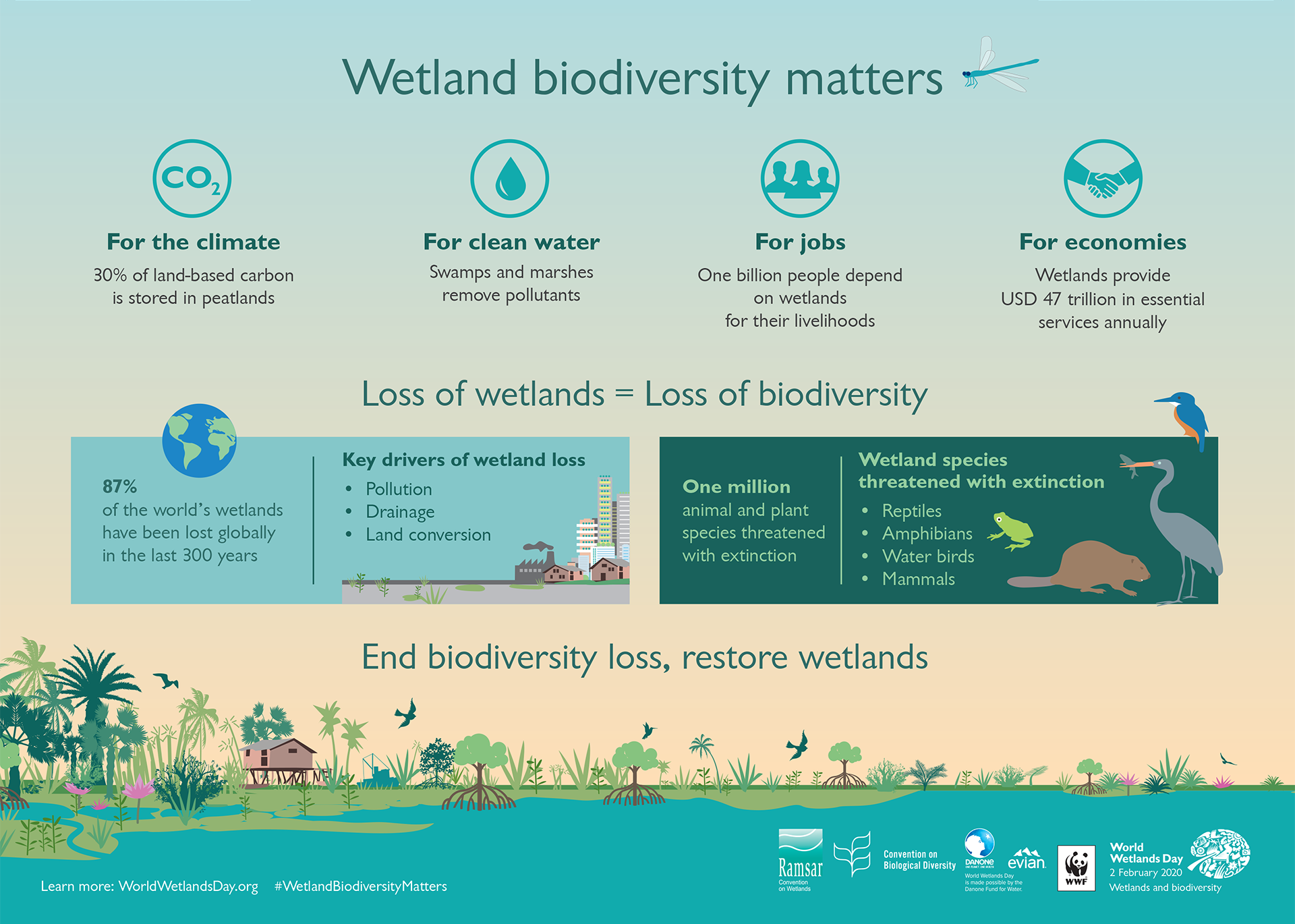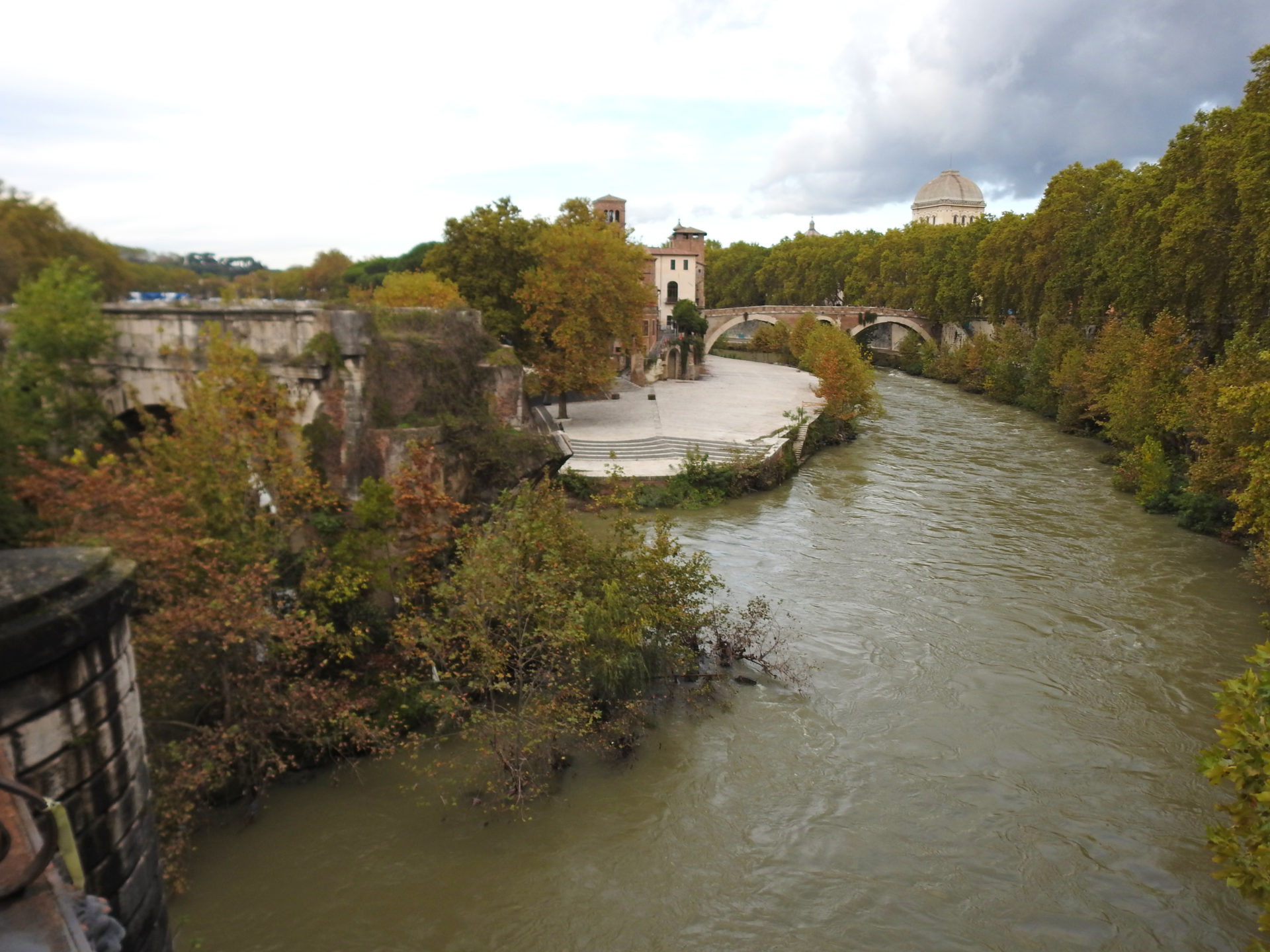Among the most productive environments in the world and stronghold of biological diversity, wetlands provide water, nutrients and home for countless species of plants and animals.
These are fundamental for human survival by providing multiple “ecosystem services”. Benefits such as fresh water supply, food and building materials, flood control, recharge of aquifers, mitigation of climate change and pollution are just some of these. Furthermore, the intrinsic value of these areas on an aesthetic, educational and recreational level should not be underestimated.
Unfortunately, despite their importance, these environments continue to decrease and to be disfigured by the unwise action of man and with them also the aforementioned ecosystem services are compromised.
To protect the ecosystems included in the macro-group of wetlands, the Ramsar Convention, the first and only intergovernmental treaty on the sustainable use and conservation of environments and their biodiversity on a global level. To date it has been signed by more than 150 countries, which, in this way, undertake to work for a wise use of all the wetlands and water resources of their territory, through national plans, policies and legislation, management and education actions. There are about 2000 areas identified between freshwater, coastal, transition and artificial environments (saltpans, reservoirs, etc.). Within this framework was born the desire to establish the World Wetlands Day, with the aim of raising public awareness about the importance of wetlands for humanity and the planet. To celebrate this important day, multiple events are organized around the world every February 2, including cultural activities, workshops, exhibitions, educational projects, excursions and birdwatching events.
Among these, many are funded by the MedWet (Mediterranean Wetlands Initiative), that brings together 27 Mediterranean and peri-Mediterranean countries that are part of the Ramsar Convention. K’ Nature is among the companies that have been supported in organizing a popular event.
Despite the strong anthropogenic disturbance to which they are subject, urban wetlands are real strongholds of biodiversity between asphalt and city buildings.
The river stretch of the Tiber, in the heart of the Italian capital of Rome, is no exception, and that’s the reason why we will be there with the event “The importance of urban wetlands: the bird diversity of the Tiber Island”.
Through an observation point, aided by a spotting scope, binoculars and information sheets, our ornithologist will provide scientific information, tell interesting facts and curiosities about the birdlife that inhabit this area. Despite being at the center of one of the largest and most chaotic European cities, this river island is of great naturalistic value. Of the approximately 75 breeding species in the city of Rome, more than 15 nest along the urban part of the Tiber River. The observation point will give the opportunity to help people to know how to recognize the most important urban species and also to explain different ecological concepts (water ecosystems, biological invasions, ecosystem services).


